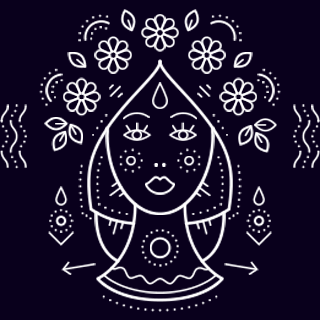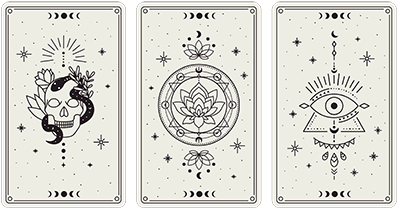Yoga for Beginners: Merging Mind, Body, and Spirit

In the intricate dance of life, maintaining mental, physical, and spiritual well-being can sometimes feel like an elusive quest. However, yoga—a practice as ancient as it is profound—offers a harmonious blend of movements that promise to unite these aspects of self into a symphony of balance and tranquility. If you’re considering starting yoga for mental health, this beginner’s guide will light the path to a more integrated state of being.
The Holistic Harmony of Yoga
Yoga is more than just physical postures; it’s a holistic discipline originating from India that includes breath control, meditation, and ethical practices. For centuries, people have turned to yoga as a means to support their mental health, reduce stress, and find inner peace. As a beginner, embracing yoga’s multifaceted approach can lead to numerous benefits that ripple through every aspect of life.
Starting Your Yoga Practice
Understanding Yoga’s Roots
Before diving into the poses, take a moment to appreciate yoga’s rich history. Rooted in philosophical texts such as the Yoga Sutras of Patanjali, yoga offers wisdom on leading a purposeful life. By understanding its origins, you’ll gain a deeper appreciation for each practice session.
Choosing the Right Style
There are various styles of yoga, each with unique characteristics:
- Hatha Yoga: Ideal for beginners due to its slower pace, focusing on basic poses and breathing techniques.
- Vinyasa Yoga: A more dynamic style that links movement with breath in a flowing sequence.
- Ashtanga Yoga: A rigorous style following a specific sequence of poses for increased stamina and strength.
- Yin Yoga: A meditative approach with longer-held poses to target deep connective tissues.
- Restorative Yoga: Uses props to support the body in passive stretches for deep relaxation.
Select a style that aligns with your mental health goals and personal preferences.
Setting Realistic Expectations
Starting a yoga practice requires patience and self-compassion. Progress might be gradual, but consistency is key to experiencing yoga’s mental health benefits. Set achievable goals and remember that every yogi’s journey is unique.
Foundational Yoga Poses for Mental Health
Here are some foundational poses (asanas) known for their mental health benefits:
- Mountain Pose (Tadasana): This standing pose helps improve posture and balance while fostering a sense of grounding.
- Downward-Facing Dog (Adho Mukha Svanasana): An all-over stretch that can help relieve stress and calm the mind.
- Child’s Pose (Balasana): A restful pose that promotes relaxation and eases anxiety.
- Warrior II (Virabhadrasana II): Builds focus and confidence while stretching the legs and back.
- Tree Pose (Vrksasana): Enhances concentration and brings a sense of inner peace.
- Seated Forward Bend (Paschimottanasana): Calms the mind while stretching the spine and hamstrings.
- Corpse Pose (Savasana): A deep relaxation pose that concludes most yoga sessions, allowing the body and mind to integrate the practice’s benefits.
Incorporating Breathwork and Meditation
Breathwork (pranayama) and meditation are integral parts of yoga that significantly enhance mental health:
- Diaphragmatic Breathing: Encourages full oxygen exchange and has a calming effect on the nervous system.
- Alternate Nostril Breathing (Nadi Shodhana): Balances the left and right hemispheres of the brain, promoting mental clarity.
- Guided Meditation or Mindfulness: Helps draw attention inward, away from external stressors, fostering a state of serene awareness.
Establishing a Routine
To reap the full benefits of starting yoga for mental health, establish a routine:
- Set aside a specific time each day or week for your practice.
- Create a comfortable space free from distractions.
- Use resources like online classes or local studios to guide your practice.
- Keep a journal to reflect on your progress and insights gained through yoga.
Overcoming Common Challenges
Beginners may face challenges such as flexibility limitations or difficulty quieting the mind. Remember that yoga is about personal growth, not perfection. Embrace modifications and props as needed, and allow thoughts to pass without judgment during meditation.
Connecting With the Yoga Community
Participate in workshops, retreats, or group classes to connect with fellow practitioners who can offer support and encouragement. The shared experience of yoga can deepen your own practice and provide inspiration.
Conclusion: Embarking on Your Yoga Journey
Starting yoga for mental health is embarking on an enriching journey towards greater harmony within yourself. As you progress in your practice, you’ll notice subtle shifts—a more resilient spirit against life’s stresses, improved emotional equilibrium, and a deepened sense of connection with your inner self.
Remember that yoga is not just an exercise; it’s a lifestyle choice that invites you to explore the depths of your being. Approach each session with openness and curiosity, allowing the ancient wisdom of yoga to guide you toward peace and well-being.
May this beginner’s guide serve as a stepping stone into the world of yoga and an invitation to merge your mind, body, and spirit into a more balanced and joyful existence. Namaste.
















